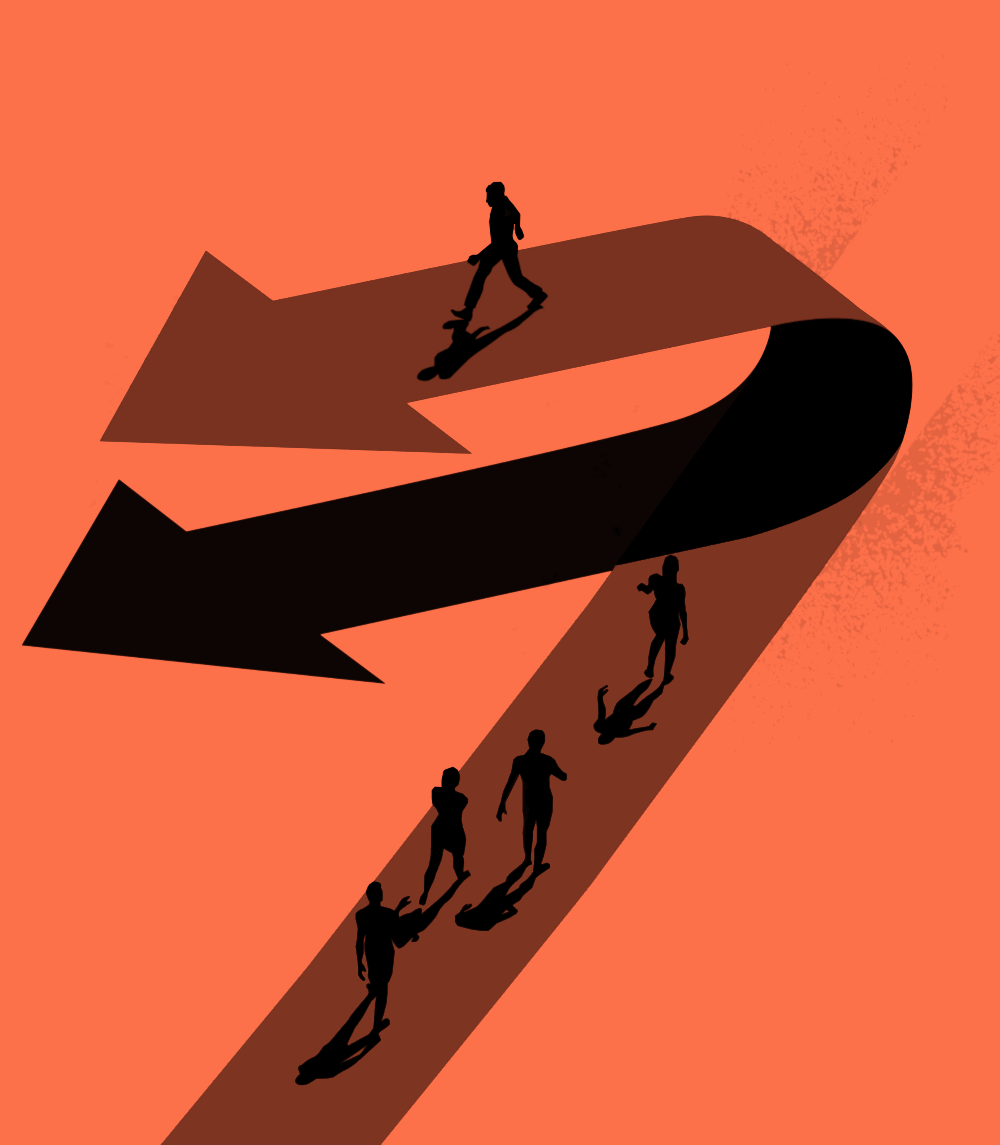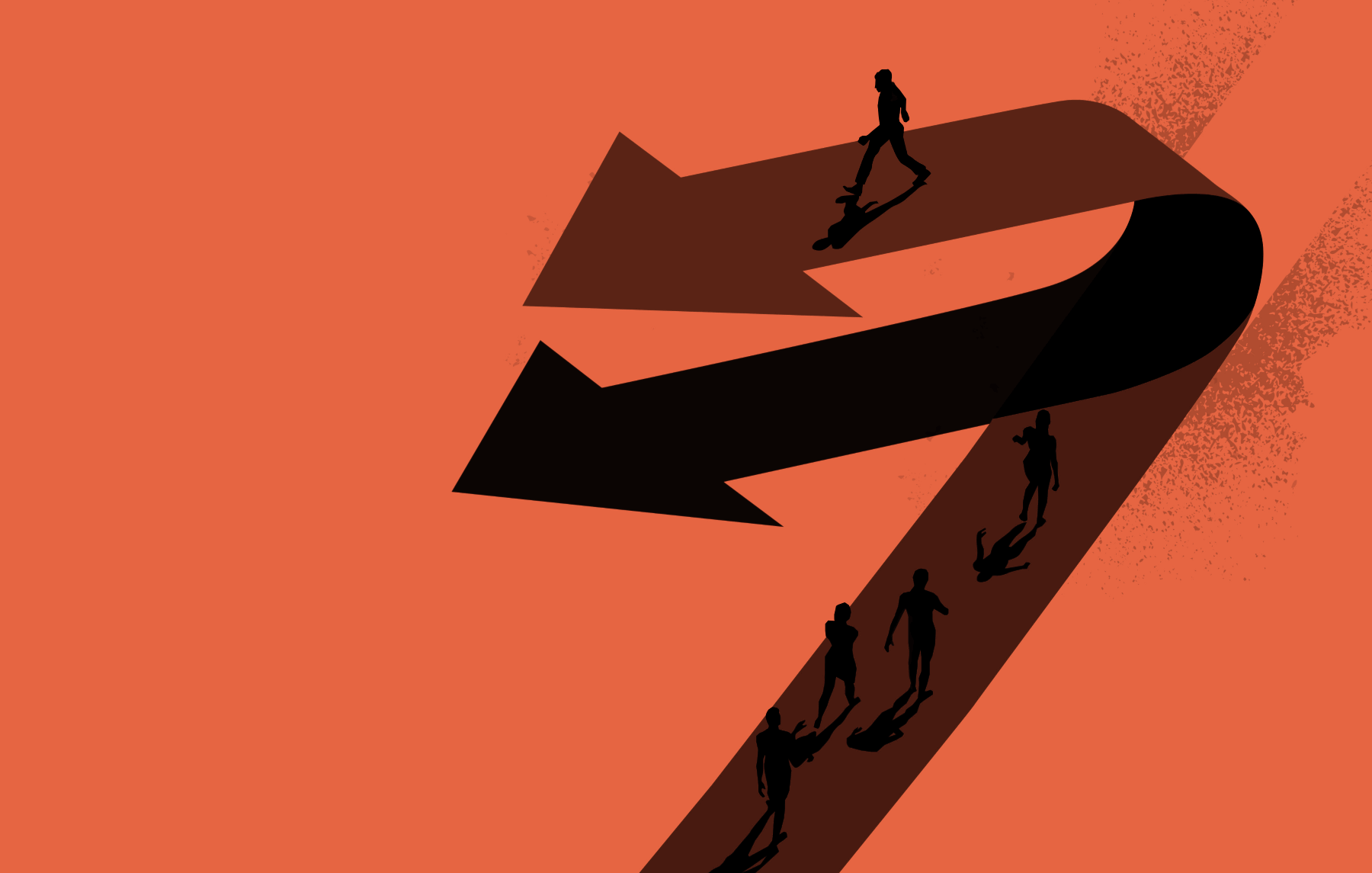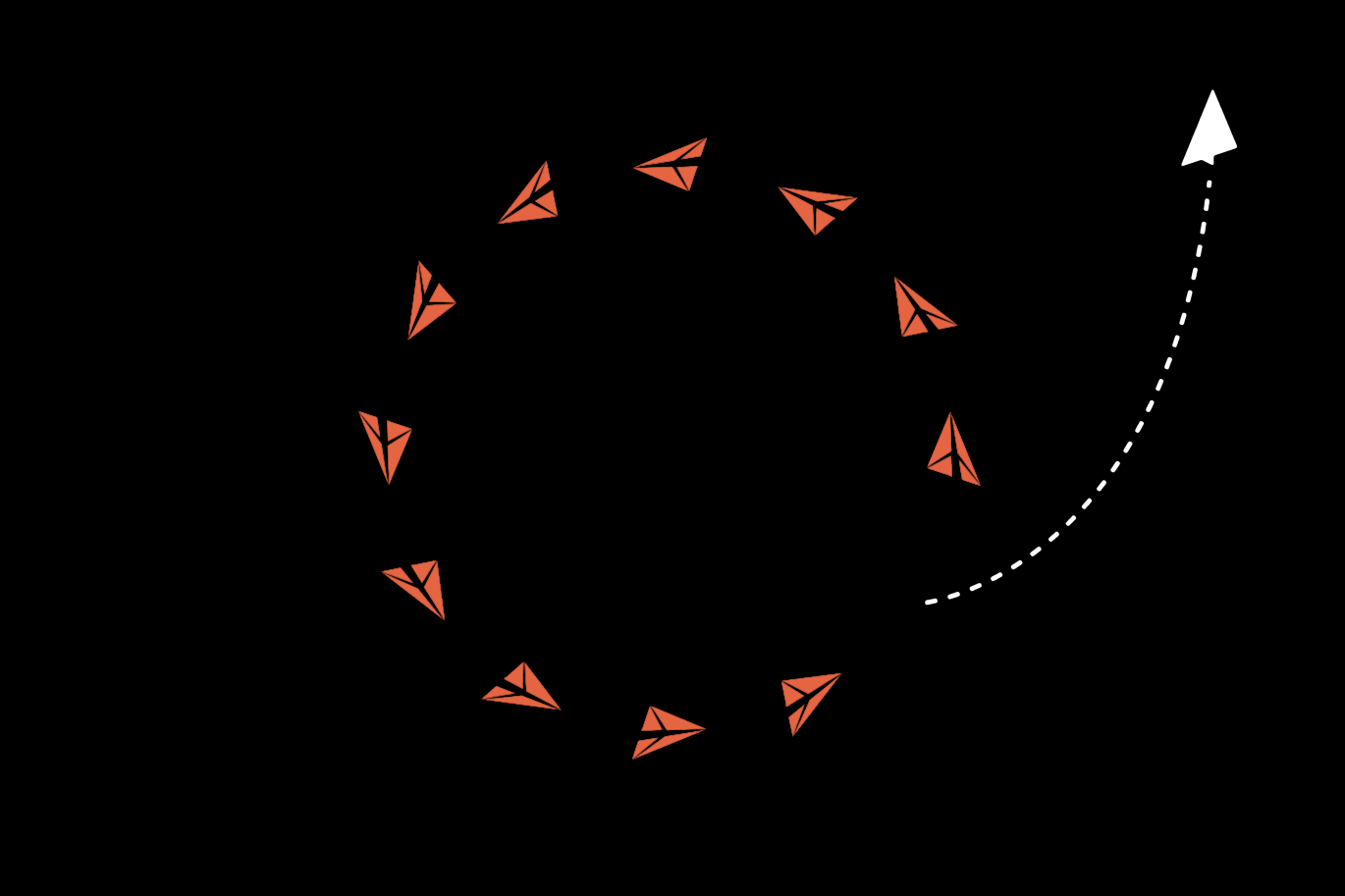“
I went a little too far ... my pendulum swung from Gordon Gecko to Jeffrey Lebowski.”
How to shift your relationship with America’s devotion to success


How to shift your relationship with America’s devotion to success

Back when I lived in Manhattan and made my living in the world of fashion magazines, I worked constantly. That's why anyone goes to New York, to work. I remember regularly waking up still drunk from some party I'd been reporting at earlier, with my big, old Macbook Pro glowing on my chest, and going right back to filing stories. Amongst my circle, all up-and-coming editors, influencers and media moguls, that kind of commitment to your gig was glorified. We were networking, hustling, building. And the thrill of the next open door, the next promotion or connection was too enticing to pass up.
So we worked. A lot. And whether you live in a big city or a small town, you know exactly what I'm talking about. In America, many of us do some version of the same thing. We are a culture founded on a rugged, individualist fantasy of success and glory in the workplace—the American Dream! Hard work and perseverance, and logging extra long hours: lunch at our desks, emails on the toilet, conference calls on vacation. And while the COVID pandemic may've taken us out of the office, it's brought our obsession with productivity into our homes in an unprecedented way. It can feel like we're surrounded on all sides by work, work, work.
Now if you're looking for me to denounce work or capitalist culture completely or suggest you trade in your iPhone Pro for three robes and a bowl, you're in the wrong place. You can go read Be Here Now for that. (RIP to the legend, Ram Dass.) I like working. I like making money, and being able to afford the nice things I want. I read Valet., for chrissakes. But something happened to me back in 2016 that made me question everything I thought I knew about work and success—I burned the fuck out.
It all started when I cashed in my journalism cred, sold out and became a freelance copywriter. Or, as I like to call it, a word mercenary. I bootstrapped a creative agency and was pulling in well over six figures a year. I worked constantly and had almost zero boundaries with clients: if you needed banner ad copy or an email subject line in the middle of the night, I was writing it. But I was also perpetually anxious and rarely left my computer. What if I missed something? To paraphrase Steve Earle, I had a two pack habit and a laptop tan. And a closet full of designer clothes, a weekend home in the Hudson Valley and anything else that I bought with the money that wasn't bringing much satistifcation. I was too stressed out to enjoy them. All the while, I knew I was spinning out, but I was terrified to cut back, or turn down any new gig dangled in front of me. That was the freelancer's creed: Never turn down work. You never know if it'll be there next time.
“
I went a little too far ... my pendulum swung from Gordon Gecko to Jeffrey Lebowski.”
By the time I moved to California in 2017, I already knew I needed to step away from the hamster wheel for a while. My circuits were fried. And eventually, the fear I'd always had of letting go of contacts, began to pale in comparison to the fear I had of waking up at 50 having worked myself through the meat of my life, perhaps my children's lives, too. I was a latchkey kid who'd seen my own parents and many of my friends' parents do versions of that, and I'd vowed to never repeat it. But that's how these things tend to go: We end up right in the jaws of the very thing we tried to escape.
So for three years, I took it easy in California. I lived on my dwindling savings. I ate tacos on shaded verandas in the middle of the day. I bought a cool, old convertible, and drove it back and forth from my Echo Park bachelor pad to my friend Mikael's artist compound in Mount Washington where we sat around laughing at our good luck. We'd managed to escape the rat race. All our friends back East chained to their desks were suckers. We had figured it out.
Now, I'm a firm believer in stepping back from anything you do to excess to examine why you do it, but I went a little too far in those years. My pendulum swung from Gordon Gecko to Jeffrey Lebowski. I did get some perspective, though. And I saw when I stopped working constantly, that all my hustling had been powered by fear. The slew of misconstrued beliefs I had: If I work less, I won't have nice stuff. If I work less, I won't be a “real man,” or attractive to potential partners. If I work less, I won't have the lifestyle I want, etc. All proved to be untrue in one way or the other. But without work to define who I was, I started to feel totally listless. A lot of men experienced this during the initial cuts last year as the pandemic landed: Who am I without my job? For me, those lean years I spent in Los Angeles were the impetus to find out. So when I started my life coaching practice at the end of 2019, I knew I wanted to make sure I didn't fall into the same old trap of all work, no play.
One of the coaches I like, a guy named Steve Chandler, has a book called Time Warrior, that's all about tweaking that balance between work and play. And the crux of it is about people pleasing. Chandler says the reason why most of us work so much is because we have a hard time saying “no” to others, and a hard time doing good things for ourselves that don't involve a backslap or “good job!” from a boss, co-worker, partner, or even the internet ('gram or it didn't happen, anyone?).


1
Here's the deal that sane people everywhere know: Every minute of the day you can avoid being on your phone is a good one. So consider using an OG day planner. (For those on a budget, I like At-A-Glance's weekly planners. For the ballers, you can't do better than the Smythson Soho.) I start every morning with mine. There's something about arm-to-pen-to-paper that can't be replicated digitally. It's the same reason I tell clients never to journal on their notepad app on their phones—you sever the flow. Go analog when it makes sense.
2
That means if you want to go for a run, take a swim, or prep a meal in the middle of the day, it goes into the calendar like a meeting would. (For those of you with digital work calendars, block your personal time off in those as well, so your colleagues won't schedule a meeting on your time.) Basically, most of us guys have a really hard time doing things for ourselves, so this practice of blocking off “me time” is a good one to get into. It's the scheduling equivalent of putting your oxygen mask on first. I tell my clients to book an hour in the middle of the day for themselves to think, and treat it the same way as a giant presentation. Even a ten minute break in the middle of the day to step out for some Vitamin D, or a skate around the block, can make a huge difference in our overall wellbeing and effectiveness when we do clock back in.
3
I always tell clients to sleep with their phones outside the bedroom, so grabbing it first thing isn't even an option. Instead, put a journal on your bedside table, or a good book, or your favorite incense. The closer we are to the sleep cycle, the more imaginative we are, so take it slow, marinate in those early moments after waking. If you live with kids, or a pet, play with them. If you wake up next to a partner, pull them in close. Keep your mornings slow and romantic. I read a quote once about legendary rocker Don Henley saying he liked to write songs in the mornings, “before the world had a chance to come in and fuck up the day.” I second that, now more than ever.
4
Flaubert's famous quote: “Be regular and orderly in your life, so that you may be violent and original in your work” applies here: if your schedule is all over the place, your brain follows suit. And, contrary to what we tend to believe, the more structured we are with our lives and our time, the more freedom we have. This one killed me for years. I had so much unstructured time I never did anything! I was always pacing between my phone, my guitar, my laptop and the kitchen, never sure what to pick up. It's in those unstructured moments that TikTok, porn or that jar of peanut butter becomes extra appealing.
The most successful people in the world are productive because they know that the more clear and concise they are with their schedules, the more brain power they have to devote to open-ended creativity. Like a guitar player who has practiced his blues scales for ten thousand hours, the foundational framework of a good schedule allows for improvisation and flow in the moment. For these two hours I will write, nothing else. And that's what we're all looking for, right? More focus, more presence in the moment, and more enjoyment from life. Oh, and there is nothing more powerful than knowing when to step away and call it a day. Which seems like a great place to sign off. There's a sunny California day out there waiting for me.
You’ve now got a life coach at your disposal. Hit Sean up with any concern you’re currently struggling with: Trouble at work? Relationship worries, family struggles or general mental health concern? Let him help you tackle it each month in this column.
Advertisement